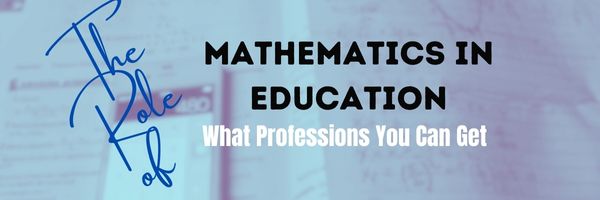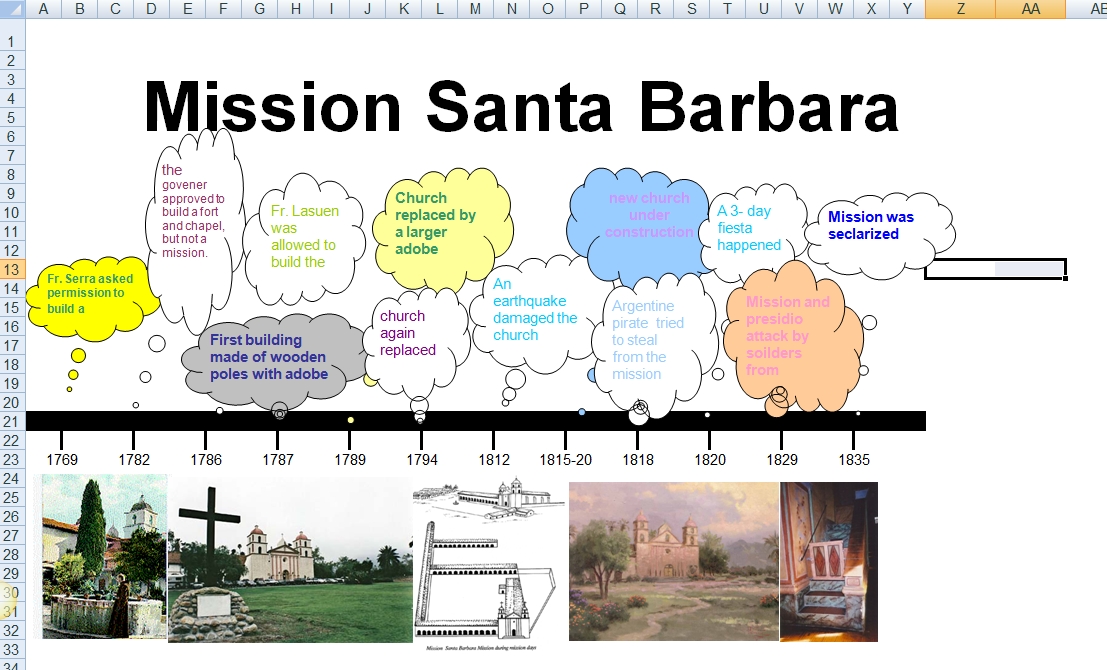The Role of Mathematics in Education: What Professions You Can Get in the Future
Have you ever found yourself pondering the real-world applications of those algebraic formulas or geometric theorems you spent hours trying to decipher in school? Or perhaps, amidst a particularly challenging calculus problem, you’ve questioned how this abstract world of numbers and symbols could possibly influence your future career? Well, you’re not alone. Mathematics, often dubbed the universal language, plays a pivotal role in shaping the educational foundation necessary for a plethora of professions. Let’s dive into the essence of mathematics in education and uncover the vast array of future career opportunities it unlocks.
Understanding the Significance of Mathematics
Firstly, it’s essential to grasp why mathematics is so critical in our education system. Mathematics is not just about solving equations or memorizing formulas; it’s a way of thinking. It teaches us problem-solving skills, logical reasoning, and the ability to think abstractly. These skills are indispensable, transcending the boundaries of the subject and becoming integral in both our personal and professional lives. But how does this abstract discipline translate into tangible career paths?
College and Mathematics: Challenges
The Complexity Cliff
Remember the first time you looked at a calculus problem in college? The leap from high school mathematics to college-level courses is more like scaling a cliff than taking a step up. High school often focuses on procedural understanding—how to solve problems with well-defined steps. In contrast, college mathematics demands a deep conceptual understanding, where students must grasp the ‘why’ behind the ‘how.’ But why does this transition feel so abrupt, and how can students better prepare for it?
Challenges and Solutions in Mathematics
College professors frequently adopt a lecture-based approach, emphasizing theory over practice. This shift can disorient students accustomed to interactive classes and immediate feedback. The question then arises: How can students adapt to this new learning environment while maintaining their enthusiasm and comprehension? In general, there are a large number of options, one of them is the use of auxiliary services for math help, such as do my math homework usually under this title you can find the edubirdie platform, they have been working in this field for many years. There you can get advice and solve various mathematical problems in college.
Professions That Rely Heavily on Mathematics
Engineering: The Backbone of Innovation
Engineering is perhaps the most obvious field where mathematics plays a starring role. Whether it’s civil, mechanical, electrical, or chemical engineering, each branch relies on mathematical principles to design and create everything from bridges and buildings to electrical circuits and chemical processes. Engineers use calculus, linear algebra, and differential equations to analyze and solve real-world problems, making mathematics an indispensable tool in their toolkit.
Finance and Economics: The Art of Numbers
In the realms of finance and economics, mathematics is the brush with which professionals paint the picture of the market’s future. Financial analysts, economists, and accountants use statistics, calculus, and algebra to forecast trends, analyze market behaviors, and make strategic investment decisions. Without a solid foundation in mathematics, navigating the complex world of finance would be akin to sailing a ship without a compass.
Mathematics: The Language of Computer Science
Theoretical Foundations
At the heart of computer science lies a rich tapestry of mathematical concepts. From algorithms and data structures to cryptography and database systems, mathematics provides the theoretical foundation that underpins these areas. But what makes mathematics the lingua franca of computer science? It’s simple: mathematics teaches us not just to solve problems, but to think logically and abstractly about solutions, a skill that is paramount in computer programming and software development.
Problem-Solving Skills
Mathematics is akin to a gym for the mind. It trains students in the art of problem-solving—a critical skill in computer science. Tackling complex mathematical problems helps develop perseverance, analytical thinking, and the ability to break down complex problems into manageable parts. These skills are directly transferable to computer science, where problem-solving is daily bread and butter. Have you ever wondered how a computer algorithm can efficiently sort a list or find the shortest path in a network? The answer often lies in elegant mathematical theories and proofs.
The Synergy with Programming
Programming is not just about writing code; it’s about solving problems in an efficient and scalable way. Mathematics provides a solid framework for understanding these problems and crafting solutions that are not only correct but optimized. For example, understanding the mathematical concept of Big O notation allows developers to analyze the performance of algorithms and make informed decisions that can dramatically affect the speed and scalability of software applications.
Algorithms and Complexity
One cannot overstate the importance of algorithms in computer science. These step-by-step procedural instructions for calculations are the backbone of programming. The development and analysis of algorithms require a deep understanding of discrete mathematics, including topics like combinatorics, graph theory, and number theory. By studying these areas, students learn to design algorithms that are not just functional but efficient and elegant.
Surprisingly to some, the health sciences field, encompassing professions like epidemiology, pharmacy, and even medical research, relies heavily on mathematics. Epidemiologists use statistics to track diseases and predict outbreaks, while pharmacists use calculations to determine dosages. The development of new medical treatments often involves complex data analysis, making mathematics a crucial element in the quest to save lives.
Environmental Science: Solving Earth’s Equations
As we face global challenges like climate change and environmental degradation, the role of environmental scientists becomes increasingly critical. These professionals use mathematical models to predict environmental changes, assess risks, and develop strategies for sustainability. Mathematics allows them to analyze vast amounts of data on air, water, and soil quality, helping to inform policies and practices that protect our planet.
The Future Landscape of Mathematics in Professions
Looking ahead, the significance of mathematics in shaping future professions cannot be overstated. With the advent of new technologies and the increasing complexity of global issues, the demand for professionals with strong mathematical skills is set to rise. Fields like data science, quantum computing, and bioinformatics are emerging at the intersection of mathematics and technology, promising exciting and rewarding career opportunities for those equipped with the necessary mathematical prowess.
Artificial Intelligence and Machine Learning
The surge in artificial intelligence (AI) and machine learning (ML) technologies has further cemented the role of mathematics in computer science. These fields rely heavily on statistical theory, probability, linear algebra, and calculus to create algorithms that can learn from and make predictions on data. Understanding these mathematical principles is essential for anyone looking to innovate in AI and ML, as they provide the tools to model complex problems and find solutions that can adapt and improve over time.
Cryptography and Security
In the digital age, security is paramount. Cryptography, the practice of secure communication in the presence of adversaries, is deeply rooted in mathematical concepts such as number theory and algebra. These principles enable the creation of algorithms that can encrypt and decrypt data, ensuring that our digital transactions and communications are secure. For computer science students, studying cryptography is not just about learning how to protect information; it’s about understanding the mathematical underpinnings that make secure communication possible.
Conclusion
So, next time you find yourself grappling with a complex mathematical concept, remember that you’re not just solving a problem on paper; you’re building the foundation for a future career that could change the world. Mathematics is more than a subject—it’s a critical tool that opens doors to countless professions, making it an indispensable part of our education system. Whether you aspire to engineer the next architectural marvel, decode the mysteries of the universe, or safeguard the health of our planet, a solid grounding in mathematics is your first step towards achieving those dreams. Let’s embrace the challenge and the beauty of mathematics, for it is the key to unlocking a world of possibilities.
Here’s the sign-up link if the image above doesn’t work:
https://forms.aweber.com/form/07/1910174607.htm
Copyright ©2024 worddreams.wordpress.com – All rights reserved.
“The content presented in this blog is the result of my creative imagination and not intended for use, reproduction, or incorporation into any artificial intelligence training or machine learning systems without prior written consent from the author.”
Jacqui Murray has been teaching K-18 technology for 30 years. She is the editor/author of over a hundred tech ed resources including a K-12 technology curriculum, K-8 keyboard curriculum, K-8 Digital Citizenship curriculum. She is an adjunct professor in tech ed, Master Teacher, webmaster for four blogs, CSTA presentation reviewer, freelance journalist on tech ed topics, contributor to NEA Today, and author of the tech thrillers, To Hunt a Sub and Twenty-four Days. You can find her resources at Structured Learning.







































Mathematics is often underestimated by students. They don’t think algebra and calculus can possibly be that useful. Who hasn’t seen those FB memes mocking algebra and geometry/parallelograms. Like you said, “Engineers use calculus, linear algebra, and differential equations to analyze and solve real-world problems”. That is definitely true. In many countries around the world, they teach calculus in high school. In Sweden I’ve had two years of calculus at high school before college, but then I went to a special science high school.
Hi Jacqui, this is an interesting article although you are preaching to the converted in my case. However, some people cannot grasp certain maths concepts. I have one son who’s a maths genius achieving in the high 90s for university level maths. My other son is excellent at ordinary maths but algebra is impossible for him. It is important to be balanced when highlighting the usefulness of maths so that people who aren’t mathematically inclined don’t feel like underachievers.